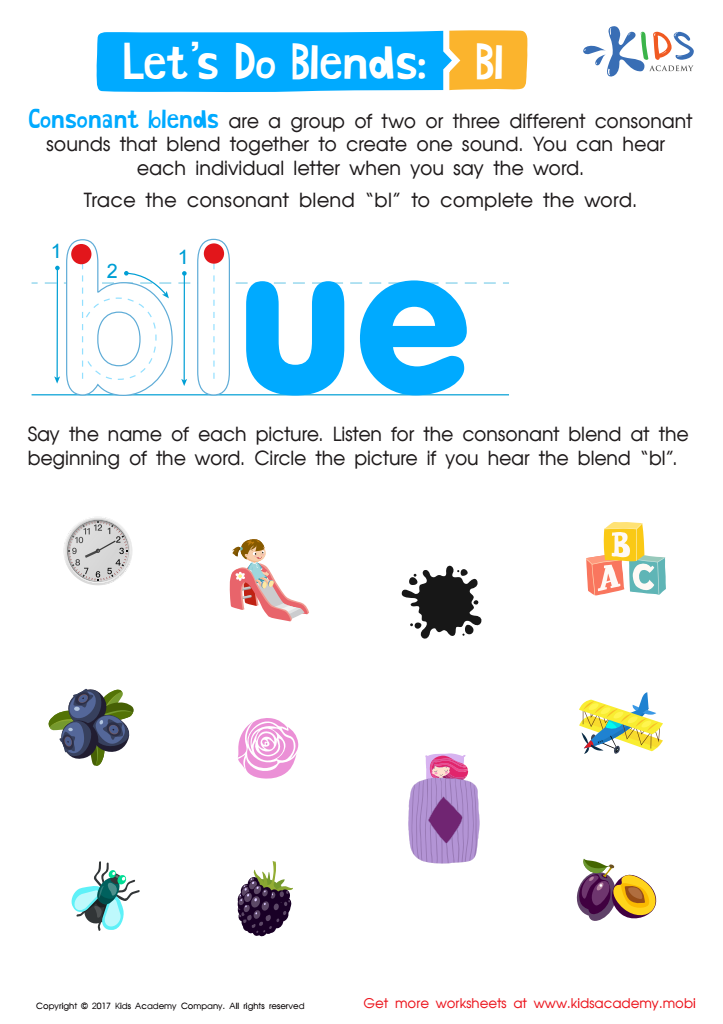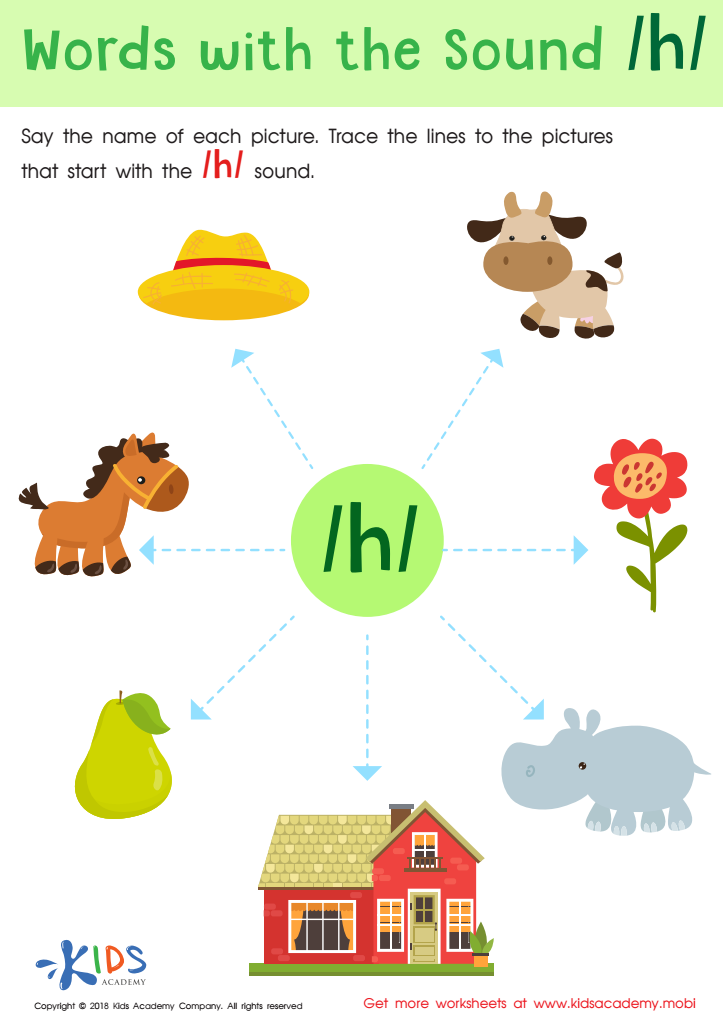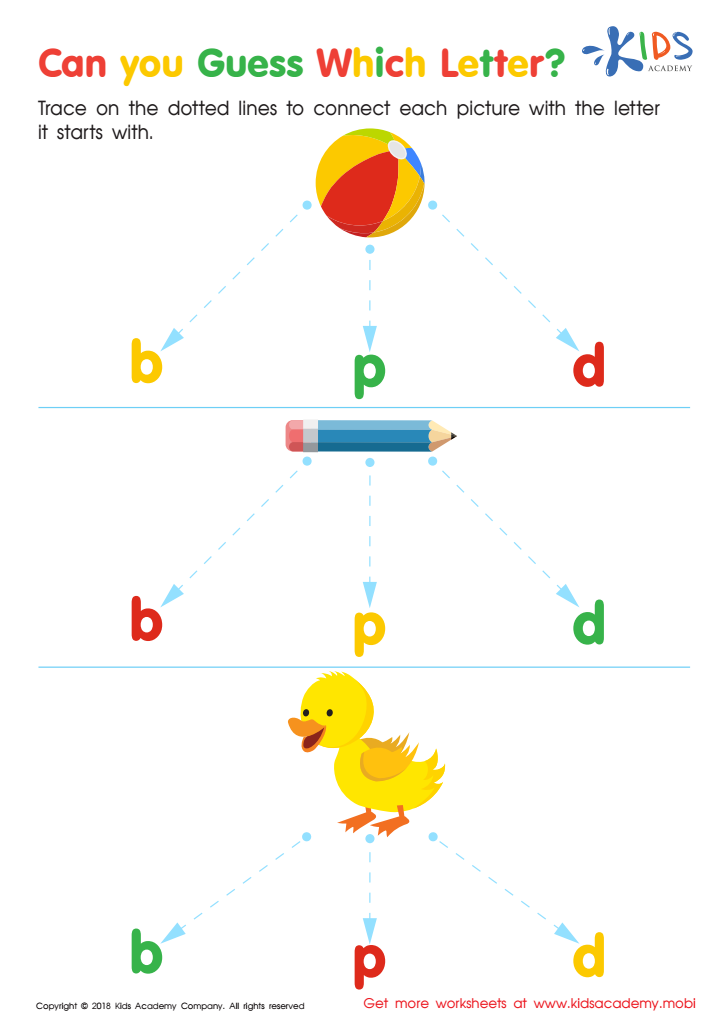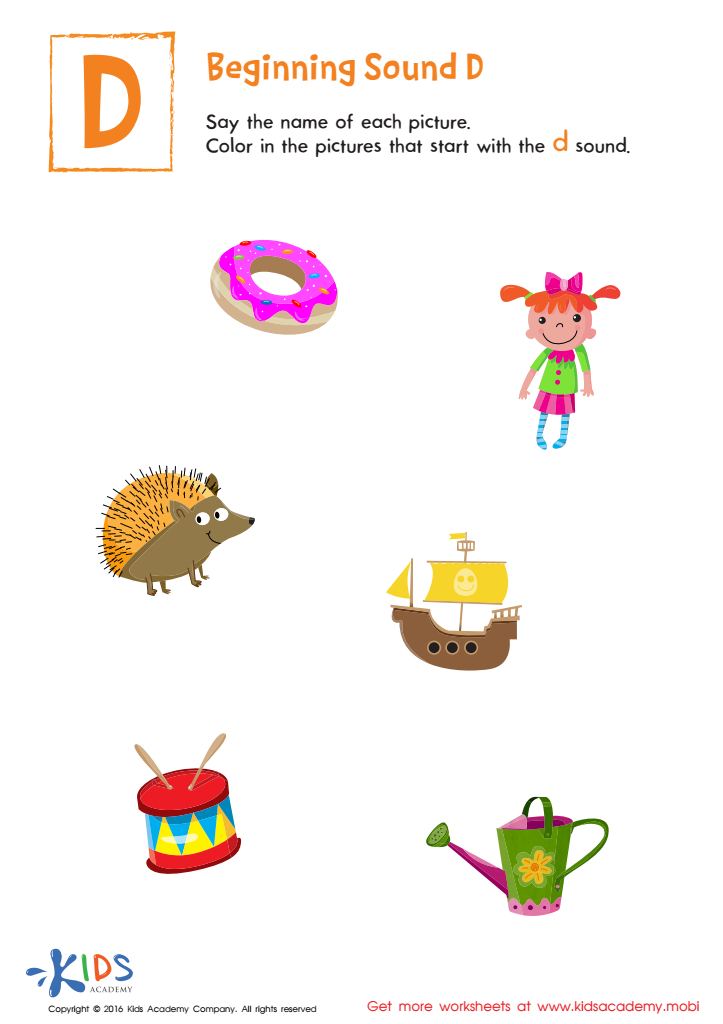Vocabulary expansion Normal Beginning Sounds Worksheets for Ages 5-9
5 filtered results
-
From - To
Enhance your child's vocabulary with our engaging Normal Beginning Sounds Worksheets, specifically designed for ages 5-9. These worksheets culminate in an enjoyable learning experience that fosters phonemic awareness and reinforces language skills. Children will actively associate letters with sounds while exploring a variety of vocabulary through interactive activities and colorful illustrations. Ideal for preschoolers and early learners, these resources promote literacy in a fun and approachable way. Encourage comprehension, spelling, and articulation as your child develops a strong foundation in reading. Perfect for classroom or home learning, our worksheets make vocabulary expansion both effective and enjoyable!


Beginning Blends: "Bl" Words Worksheet


Words with sound h Reading Worksheet


Can you Guess Which Letter? Worksheet


Words with sound f Reading Worksheet


Beginning Sound D Worksheet
Vocabulary expansion and understanding normal beginning sounds are crucial for children aged 5-9, as these skills form the foundation for successful reading and communication. At this developmental stage, children are highly receptive to language and begin to construct their own understanding of words, sounds, and their meanings. By focusing on vocabulary around normal beginning sounds, parents and teachers can enhance phonemic awareness, which directly impacts a child's ability to decode words when reading.
A rich vocabulary not only fosters better reading comprehension but also encourages effective expression in speaking and writing. Children with an extensive vocabulary have a greater ability to articulate their thoughts and feelings, resulting in improved social skills and confidence. Furthermore, exposure to diverse words cultivates curiosity, critical thinking, and a love for learning.
Additionally, focusing on starting sounds helps children develop the necessary skills to identify and manipulate sounds, an important precursor to spelling and advanced literacy. For parents and teachers, engaging children in activities like phonics games, reading aloud, and using descriptive language can make vocabulary expansion both fun and impactful. Ultimately, prioritizing vocabulary and phonemic awareness sets children on a path toward academic success and effective communication.

 Assign to My Students
Assign to My Students





















